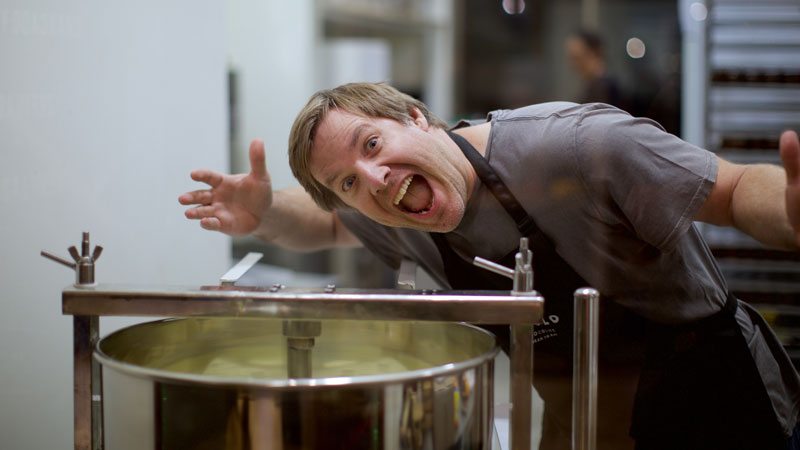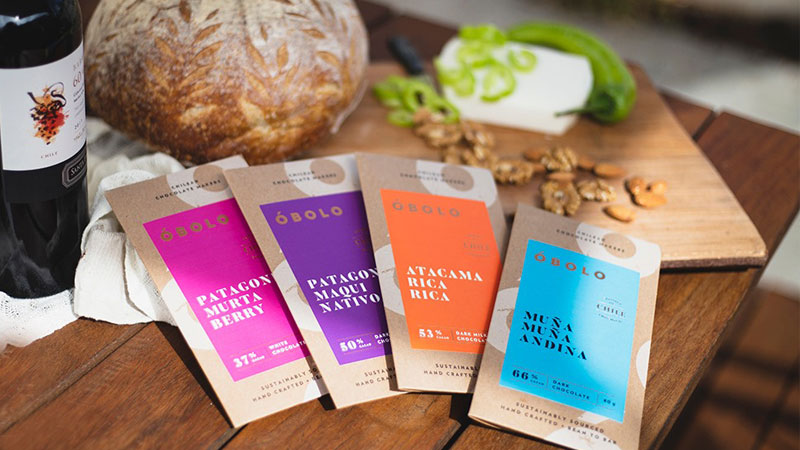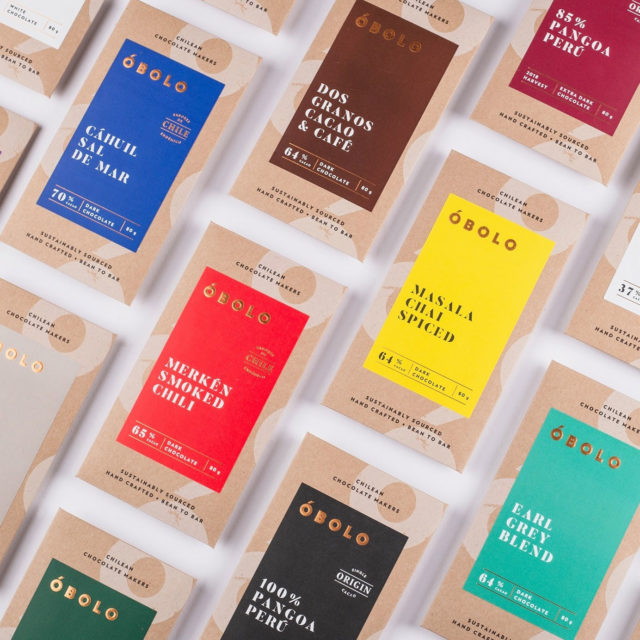So you’re obsessed with biodynamic wine. You buy your bottles at specialists like Flatiron Wines & Spirits in Manhattan and The Royce in Detroit, and sing the praises of its ecological benefits. That’s great!
Now, brace yourself, because biodynamic chocolate has arrived to take your passion to a whole new level. In Chile, land of Cabernet Sauvignon and Carménère, Óbolo Chocolate sources biodynamic berries from a Patagonian farm to use in its craft chocolate bars. Óbolo is the first company in Chile to make chocolate from bean to bar, which means owner Mark Gerrits and his team source whole cocoa beans and roast, grind, and smoothen them into chocolate bars from scratch at his Santiago-based factory and shop.

Gerrits sources high-quality beans from the Pangoa co-op in the Junín region of Peru and visits often, and in 2017 he invested in hosting a weeklong workshop on biodynamic agriculture there “to safeguard the environmental stability of their cacao production, strengthen the capacity of cacao farmers, and ensure the quality of their cacao,” Gerrits says. He brought in Arturo Labbe, a Chilean biodynamic agriculture expert who implemented the biodynamic certification of Odfjell Vineyards, to train 100 farmers, and installed two pilot farms to serve as educational centers for other farmers.
The same biodynamic principles apply whether you’re growing wine grapes or cocoa beans. Labbe says he uses a growing cycle based on the astrological calendar, composts with ingredients like deer bladders, and even buries a cow’s horn stuffed with cow manure — all in an effort to replenish the soil with various nutrients and chemicals.
Since 2012, Labbe has also run Wild Patagonia Foods, which sells biodynamic berries native to Patagonia. “We began with the idea of valuing Chilean berries with high antioxidant value and rescuing the tradition of communities to harvest their forest,” Labbe says. So when Gerrits decided to launch a new line of Chilean inclusion bars this year to showcase “our country’s ecological diversity,” he knew he wanted to work with Labbe’s fruit.

The results blow this chocolate expert’s mind. Take Óbolo’s dark milk chocolate with maqui berries, which are ground into the chocolate so that instead of a chewy, dried-fruit experience, you taste long notes of a blueberry-type fruit with the slightest hint of nuttiness. Or the white chocolate with murta berries and a bit of raspberry, which has bright fruitiness and a beautiful red hue that will change the way you think of white chocolate.
The bars launched in the U.S. at the end of August 2019 and are available at select stores like the Meadow in New York City and État de Choc in Montreal. They retail for $10 to $12, a small price to pay for something simultaneously from this earth and out of this world.
